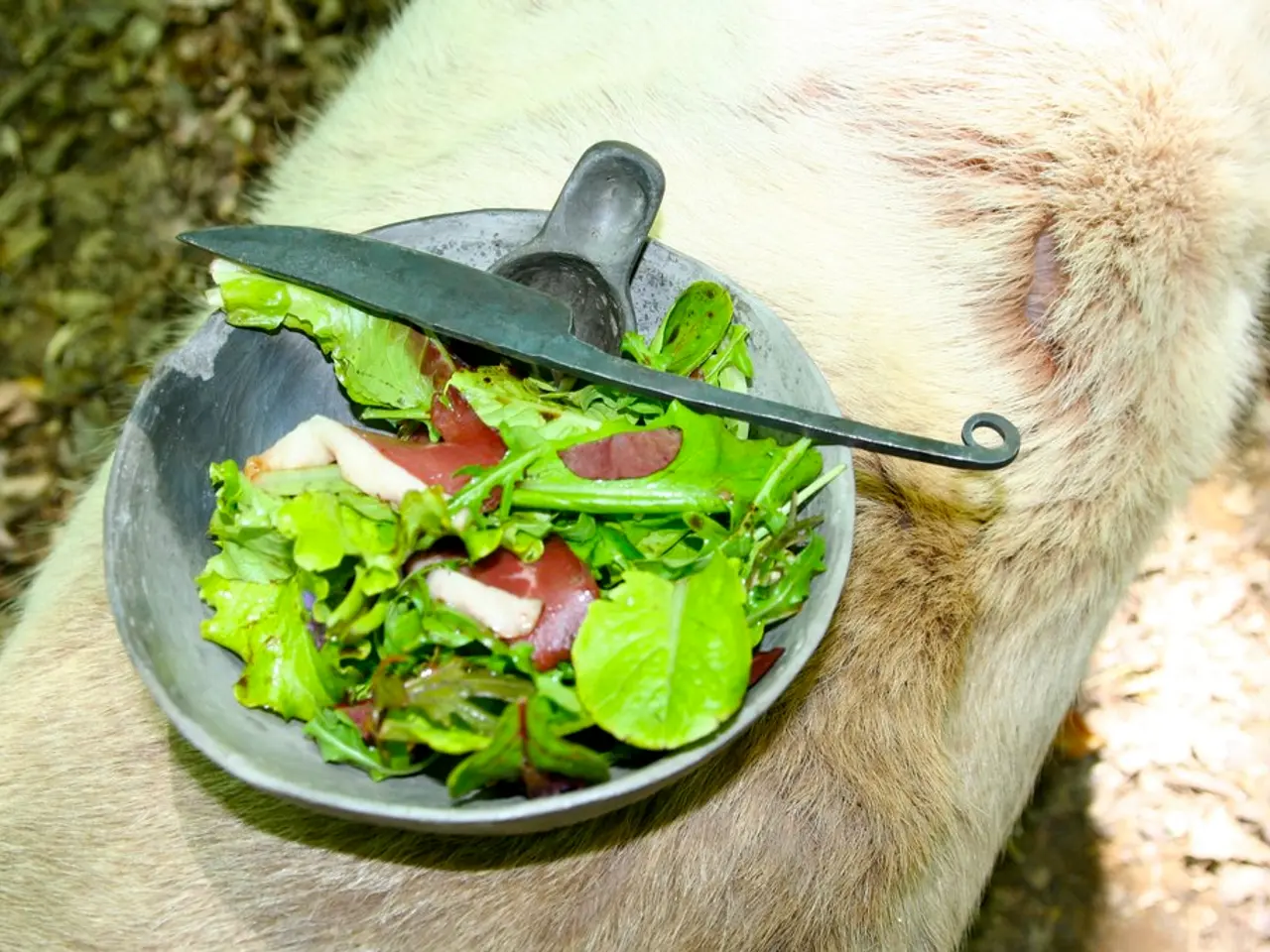Dog licking caused fatal consequences for a woman, expert shares cautionary statement
An 83-year-old woman from Norfolk, June Baxter, tragically passed away on July 7, 2023, following a rare but fatal infection caused by Pasteurella multocida, a bacterium commonly found in dogs' mouths.
The incident occurred at Baxter's home in Norfolk when her dog licked a wound she had sustained while using a commode on June 29. The lick led to an infection that was later traced back to the domestic dog.
Baxter was taken to the Norfolk and Norwich University Hospital on July 1, where she was diagnosed with the infection. Despite the best efforts of medical professionals, she succumbed to sepsis, a serious complication of the infection, which was later confirmed as the cause of her death by Coroner Johanna Thompson.
Pasteurella multocida is a bacterium that is usually harmless to humans, as it is found in approximately 50% of dogs' mouths. However, if it enters the body through open wounds or cuts, it can lead to serious infections, such as sepsis, which can be life-threatening, especially for the elderly or those with weakened immune systems.
To minimise the risk of such infections, experts advise several precautions:
- Avoid allowing dogs to lick open wounds, cuts, or broken skin.
- Practice good hygiene by cleaning any wounds promptly and thoroughly if exposed to saliva.
- People who are elderly, immunocompromised, or have chronic health conditions should be particularly cautious around dog saliva.
- Discourage dogs from licking around sensitive mucous membranes such as eyes, nose, or mouth, as these areas are more prone to bacterial entry.
- Seek medical attention if a wound becomes red, swollen, painful, or if systemic symptoms such as fever develop after contact with dog saliva.
Dr Andrew Conlan, an associate professor in epidemiology at the University of Cambridge, emphasised that the risk of serious infection from non-pathogenic bacteria is low for most healthy people. He added that most commensal bacteria do not cause problems.
Dr Margit Muller, a veterinary surgeon, advised against allowing dogs to lick sensitive areas like eyes, nose, and mouth, as well as open wounds. She also suggested covering open wounds as a preventive measure to avoid infections from dog licks.
It's important to note that June Baxter had secondary causes of death, including kidney, liver, and heart conditions. However, the primary cause of her death was the infection resulting from the dog lick.
This tragic incident serves as a reminder of the importance of maintaining good hygiene and being cautious around pets, especially for vulnerable individuals. It also underscores the need for continued research into the potential risks associated with common bacteria like Pasteurella multocida.
[1] Centers for Disease Control and Prevention. (2021). Pasteurella multocida. Retrieved from https://www.cdc.gov/nczved/dvrd/ncbvd/rabies/resources/rabies-related-bacteria/pasteurella-multocida.html
[2] Mayo Clinic. (2021). Pasteurella infections. Retrieved from https://www.mayoclinic.org/diseases-conditions/pasteurella-infections/symptoms-causes/syc-20369023
[3] National Library of Medicine. (2020). Pasteurella multocida. Retrieved from https://medlineplus.gov/ency/article/000969.htm
- Despite the low risk for healthy individuals, it is crucial to avoid allowing dogs to lick sensitive areas like eyes, nose, and mouth, as well as open wounds, to prevent potential infections from Pasteurella multocida, a bacterium that is commonly found in dogs' mouths.
- Recent news reports have highlighted the importance of maintaining good hygiene and being cautious around pets, especially for vulnerable individuals, as the bacterium Pasteurella multocida can lead to serious infections like sepsis, emphasizing the need for continued research in health-and-wellness, mental-health, skin-care, and fitness-and-exercise.
- In light of the unfortunate event of June Baxter's death, experts are further urging the public to be vigilant about the potential risks associated with common bacteria like Pasteurella multocida, particularly when attending events in the field of science and academic conferences, where close contact with pets might occur.




